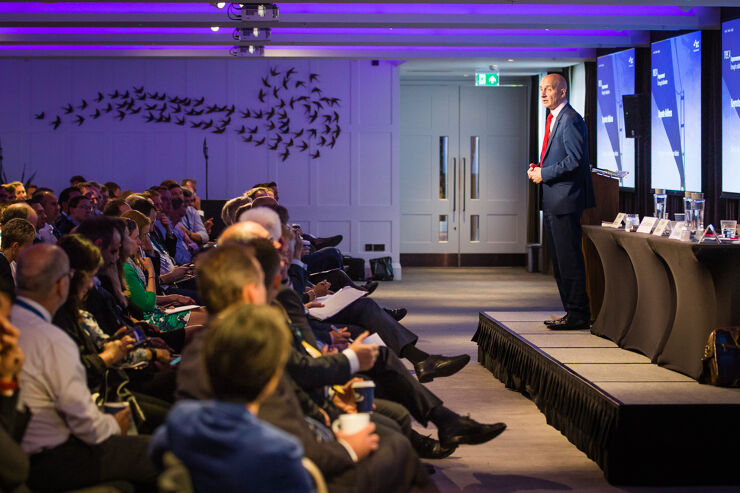
The construction industry’s ability to deliver HS2 successfully, on time and on budget, will be the defining factor in whether future major infrastructure projects ever get off the ground post Brexit, former National Infrastructure Commission chair Lord Adonis told the 2018 NEC Users’ Group Annual Seminar on 20 June 2018.
Speaking to public and private sector industry experts at the event, which also marked the 25th anniversary of the NEC suite of contracts, Labour peer Lord Adonis said uncertainty surrounding Brexit has resulted in even tighter Government purse strings. He said the biggest threat to HS2 success is no longer political backing, but the industry’s own ability to collaborate efficiently and effectively.
At the iconic County Hall, overlooking Westminster and the River Thames, he said: “HS2 is critical to the rebalancing of the country between London and the regions, especially the North. It must delivered efficiently, timely and cost effectively to be seen as a success.”
Recognising that NEC suite of Contracts’ central themes of collaboration and shared understanding towards efficiency and risk management are key, Lord Adonis told the Users Group seminar that ‘industry must find a balance of quality and price to justify that future spending on major infrastructure.
Lord Adonis also discussed the importance of continuing to prioritise the renewal of the UK’s ‘incredible’ existing Victorian infrastructure which continues to be the backbone of major cities such as London 200 years later. He added that in order to prosper with devolved powers, the northern cities must replicate London in terms of governance and its transport model.
NEC contracts have already been critical to countless high-profile and iconic international projects including London 2012 Olympics, Crossrail and London Heathrow’s Terminal 5.
Wednesday’s event also heard from Dr David Hancock, Construction Director for the Infrastructure and Projects Authority Cabinet Office, and David Ferroussat, Development Procurement Director at Heathrow Airport.
Using case studies of Terminal 5 and Terminal 2, Mr Ferroussat discussed how NEC has helped shape Heathrow’s contracting journey and inspired greater collaboration and leadership as the airport looks ahead to possible future expansion.
Wednesday’s event, which also saw this year’s NEC Awards for collaborative excellence presented, allowed NEC’s international community to engage directly with a variety of experts from infrastructure and facilities management.
The ICE’s Project 13 intends to inspire a new long-term, value driven approach to infrastructure as Hannah Vickers, head of policy and public affairs at the Institution of Civil Engineers, and Emma-Jane Houghton, associate director at KPMG, explained.
Linda Hausmanis, CEO of the British Institute of Facilities Management (BIFM), outlined the opportunities and challenges faced by the FM sector, while Ian Arbuckle, assistant head commercial for the Defence Infrastructure Organisation discussed the outstanding impact of collaboration on the Clyde Infrastructure Programme.
Finally, Ian Heaphy of the NEC4 Contract Board introduced the new NEC4 Alliance Contract (ALC), providing advice on when and why to use it and key aspects of the contract. The very first early adopter of the Alliance model Donna Kingett, AMP7 Contract Strategy Manager of Yorkshire Water Services then outlined how its success will be measured.
The contract marks the next step in collaboration and creates a ‘true’ alliance arrangement, where the client and all key members of the supply chain, called partners in the ALC, are engaged under a single set of conditions of contract. All members of the alliance have an equal voice and share in the performance of the alliance as whole as opposed to their own individual performance.
The contract is designed for use on major projects or programmes of work, where longer-term collaborative ways of working are to be created. It can also be used to deliver a programme where a number of lower-value projects can be combined to create a major programme of work.
Find out more on the Alliance Contract >




